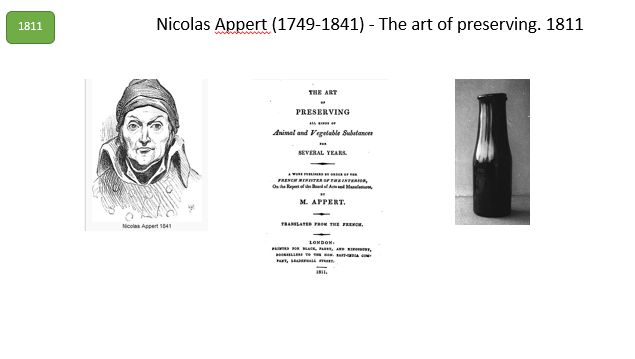

 |
Page
51
|
|
I am taking this slightly out of turn as I wanted to present the two costume books together. Caroline Bendix (conservator) thinks this is in a later binding The Charlecote library is full of surprises and finding this entry in the catalogue was one of them and yet this book changed forever the way we all feed ourselves. Appert discovered how to bottle food substances which led in turn to the process of canning. Napoleon said that an army marches on its stomach. No matter how well trained or how brave the troops they needed to be properly fed if they were to win battles. Food was only plentiful in season and soon perished if it had to be transported over long distances. Food could be preserved by drying, smoking or salting but the results were not always tasty and, through lack of fresh vegetables, troops developed a skin and gum disease called scurvy which could prove fatal. It particularly affected those undergoing lengthy maritime voyages. Scurvy is due to a deficiency in Vitamin C necessary in the synthesis of collagen. Herbal remedies had been known since antiquity but it was the naval surgeon James Lind who experimentally proved in 1753 that it could be treated with citrus fruit although it was several decades before the Royal Navy acted on this.
Glass bottles were easily broken so other containers were sought. Iron cans were tried but the acid in many foods caused it to corrode which gave the food a bad flavour or even poisoned it. That problem was solved in 1810 by a British inventor (of French origin) , Peter Durand, by lining the iron with tin and so the modern process of canning was developed. However, it was 45 years before the can opener was invented by Robert Yeates so troops had to resort to opening cans with their bayonets or by hitting them with rocks to split them!
|